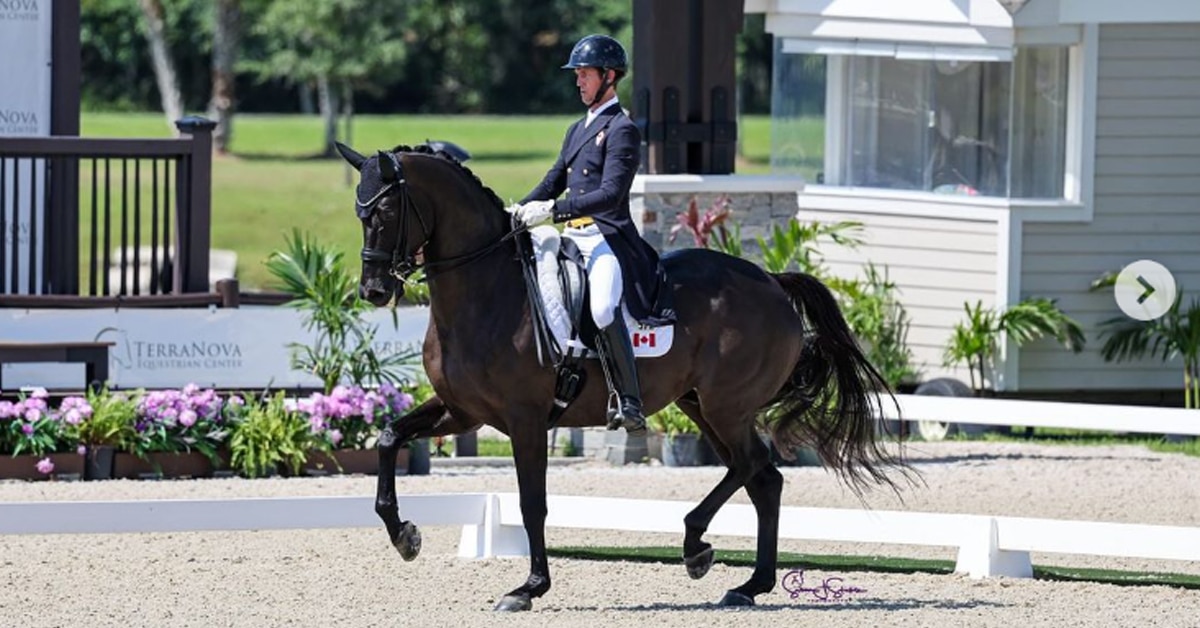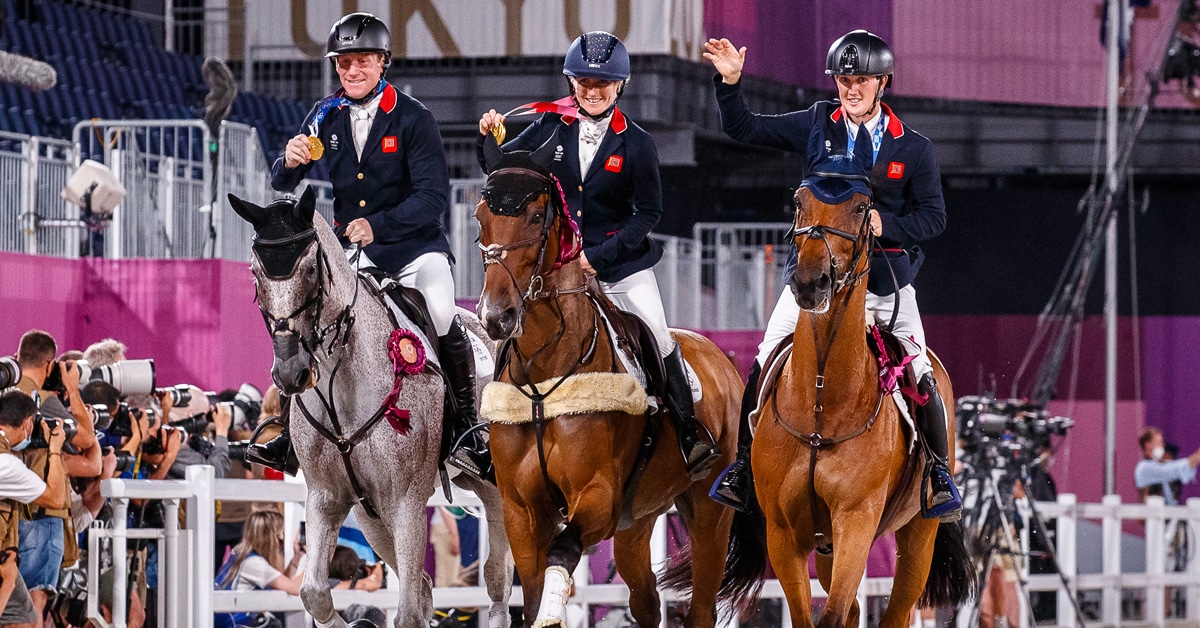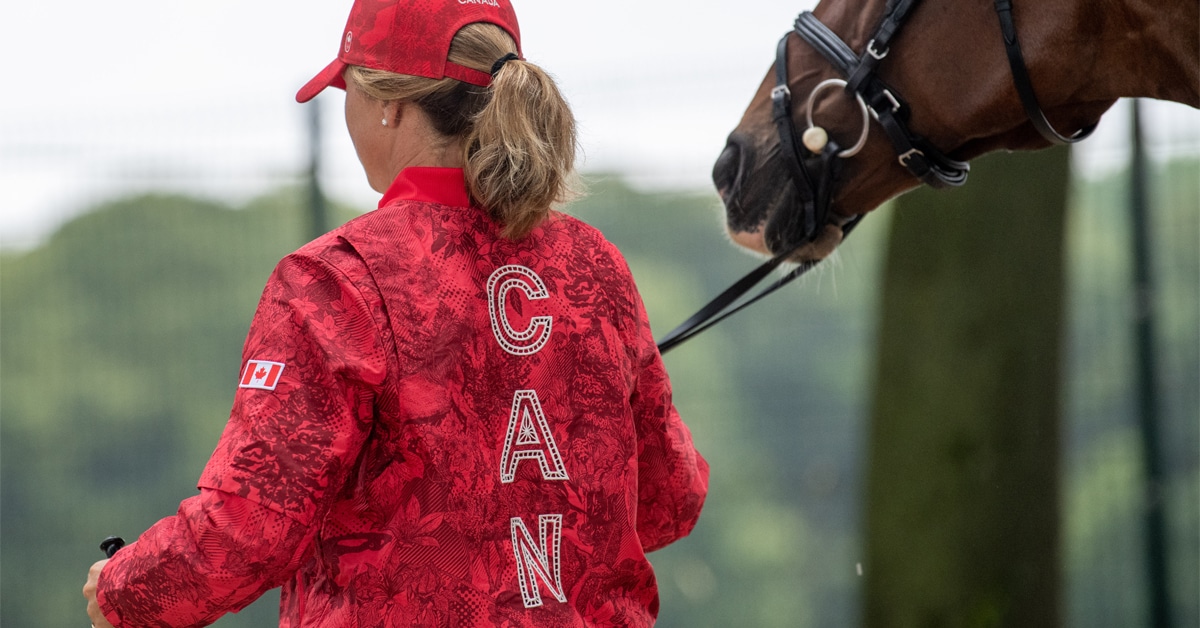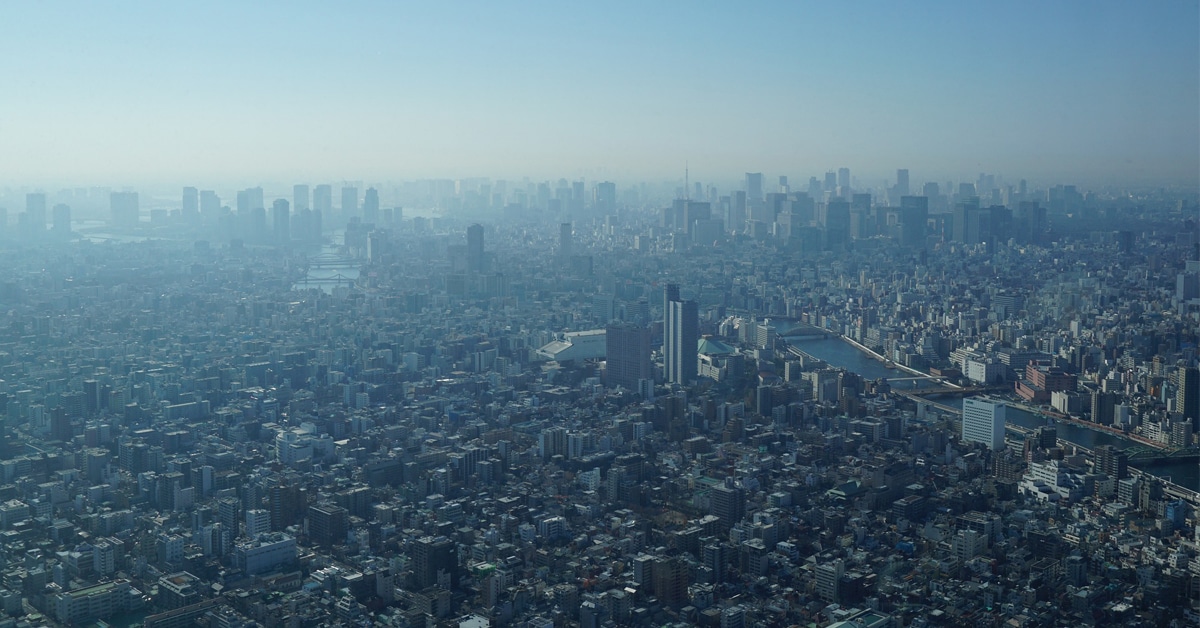Management of heat stress in Tokyo may be complicated by Covid mitigation measures, the seriousness of which was laid bare at the online FEI Sports Forum today.
The first sessions this morning (June 1) gave extensive advice about pre-event as well as in-competition preparation for the climate, with the situation described as “very challenging” by FEI head vet Goran Akerstrom because of the heat and humidity. On an average day in July and August, the temperature in Tokyo can reach highs of 35°C (95°F). This is coupled with high humidity levels ranging from about 78% to 83% relative humidity during those months. Summer rains are also common, with intense and unpredictable bursts of sudden severe rainfall.
One problem, for example, could be a limit on the amount of time horses may be stood in shaded areas in order to comply with humans’ social distancing requirements, while some delegates were concerned about lack of information about access to the venue to deal with a veterinary emergency.
It has always been known that climate would be a problem in Japan, though a new report [not mentioned during the sports forum] concludes it could be even hotter than usual in July.
A vast amount of educational material on heat stress prevention for both horses and humans has been posted on the FEI website including a series of “Beat the Heat” instructional videos.
One piece of good news is that daily Covid testing for riders will take place at the equestrian venue, and riders will not have to travel to the main center as had been feared amid arrangements to keep Olympic participants apart from Tokyo residents. However, it became clear from questions after the FEI presentations that there is still considerable confusion about Covid-secure arrangements for grooms, team officials and vets, especially over travel within the city, especially as they will be spread very thin due to a reduction in accreditations as the Olympic organisers try to minimise attendees.
Quinten Simonet, representing the French equestrian federation, was concerned about transportation and then access to the venue in the middle of the night in the event of an equine emergency. Catrin Norinder, the FEI’s director of eventing and Olympics, said that “for its part” the FEI was still having difficulty obtaining this logistical information.
In the past week, a UK study entitled “Rings of Fire” expects Tokyo to be the most “thermally stressful Olympics” of recent times, with performances impaired as a result.
Professor Mike Tipton of the University of Portsmouth, one of the authors, said: “The take-home message is you’ve probably got to move the Olympics to a different time of the year rather than a different geographical location or time of the day and I think that’s something, going forward, the International Olympic Committee will have to start considering.
“I would be fairly confident to say that performances will be impaired across a lot of sports. The sport as a spectacle will be impaired in terms of the performance level of the people who are doing it.”
The mean annual temperature in the region has risen by 2.86 degrees since 1900 ‒ three times as fast as the world average. In 2018, a July heatwave was called a natural disaster by Japan’s weather agency, while in 2019 more than 5,000 people were hospitalised.
More from News:





